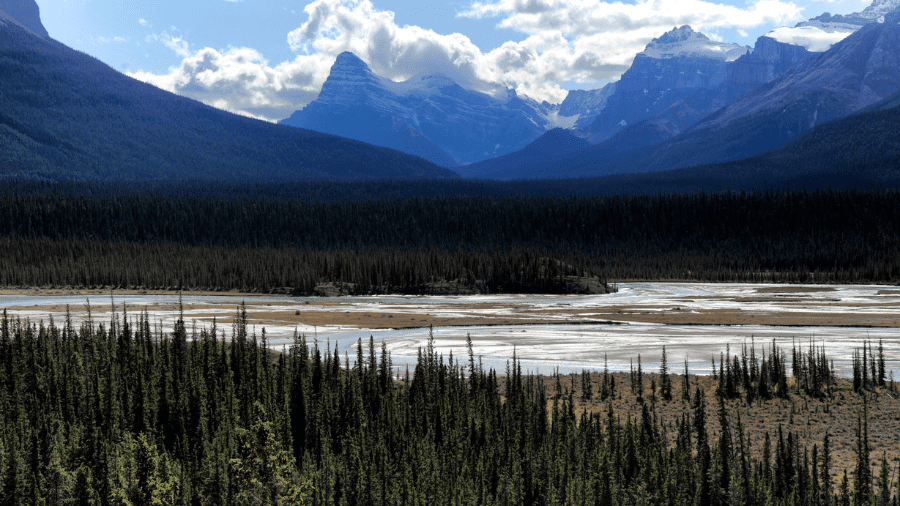This article originally appeared in the Globe and Mail.
By Ken Coates and JP Gladu, March 6, 2023
Sometimes great revolutions are silent and collaborative, seeking long-term transformation, not immediate gratification. In Canada, such a movement is reordering the foundations of Indigenous power, as Indigenous peoples and their governments assert greater control over traditional territories.
Despite the extensive discussions in the country on the harms of colonialism and the demands of Indigenous peoples, comparatively little is said about the imposition of federal and provincial government management systems on Indigenous territories. The irony is profound. For centuries, Indigenous peoples managed their resources without calamity, beyond occasional natural disasters.
Years of government control have brought wildlife declines, human-made ecological disruption, restrictions on harvesting, and now, the challenges of climate change. Rather than offset the effects of rapid economic development, imposed management systems are instead associated with the ecological disempowerment of Indigenous peoples, the marginalization of Indigenous knowledge in favour of Western science, and major concessions to developers and non-Indigenous land users that interfered with traditional land use.
But a new era is at hand. In recent years, as resource exploration spread through Canada’s North, the nature of government oversight went from forest rangers to books teeming with regulations, before finally requiring companies and government departments to consult with Indigenous communities on development projects. Just last month, Free Prior and Informed Consent – the UN-recognized right of Indigenous peoples to give or withhold consent to projects that may affect them or their territories – became reality when NWP Coal Canada voluntarily gave the YQT First Nation veto power over a mining project in British Columbia.
People in the South typically understand little about changes in the Yukon, Northwest Territories, Nunavut, northern Quebec and Labrador. But the North is leading Canada, if not the world, in Indigenous re-empowerment through modern treaties. Today’s treaty negotiations include guarantees of Indigenous representation on oversight and decision-making boards, substantial portions of land being assigned to Indigenous control, and the foundations of real partnerships between Indigenous and public governments.
When governments are reluctant to share authority, Indigenous representatives have turned to the courts, where they have won hundreds of judgments, many of which reinforce the need to recognize Indigenous authorities.
But not all Indigenous advances are the result of courthouse victories. Since 2018, the emergence of Indigenous Protected and Conserved Areas (IPCAs) has enabled Indigenous bodies to oversee large swaths of land they have designated for conservation. And although the federal government has provided more than $1.1-billion to fund IPCAs, it is Indigenous peoples – not Ottawa – driving the processes. In one example, the Taku Tlingit First Nation unilaterally declared much of their traditional territory a protected zone, but made a substantial portion available for high-return, high-value resource projects.
The broader journey is also supported by the under-the-radar work of the federal First Nations/Indigenous Guardians program, which has put hundreds of Indigenous peoples on the land to help protect and rehabilitate the territories. Besides protecting habitats, conservation is also an important employment initiative, providing decent jobs. In fact, collaborations with government, environmentalists and industry reflect the Indigenous communities’ recognition that partnership and co-ordination is essential for long-term success. Industry and environmentalists have recognized that the notion of Indigenous-led collaboration is necessary for the shared protection and careful development of the northern boreal forest.
Indigenous impatience, however, often outpaces the negotiation of new accords or the provision of new funding. Some West Coast First Nations, frustrated by what they see as mismanagement of the commercial and food fishery, have declared their determination to control resource use. Others in B.C. have taken dramatic and successful steps to protect caribou herds, and Mi’kmaq communities in the Maritimes are demanding greater say in regulating lobster harvests.
While unilateral Indigenous action has become more commonplace, especially as climate change increases the sense of urgency, the re-empowerment of Indigenous communities is not necessarily anti-development, as demonstrated by groups such as the Tahltan in B.C., the Mikisew Cree in Alberta and the James Bay Cree in Quebec.
There is dissatisfaction with environmental management regimes in numerous regions, most notably the push-back against the Baffinland mine expansion in Nunavut. Such resistance efforts are appropriately separated from non-Indigenous environmental protests, including the struggle over B.C.’s old growth forests and the Coastal GasLink Pipeline, with the latter being broadly supported by First Nations along the route.
The rise of Indigenous environmentalism is a profoundly important and largely quiet revolution. Indigenous communities speak for themselves on matters of protection, conservation and development. They accept ecological roles when and if opportunities arise, and they speak up when the system moves too slowly or inadequately. Non-Indigenous groups, including industry, government and non-governmental organizations, have learned to listen and even to accept Indigenous direction.
The transformation remains at its formative stages. But a new Canada, one founded on a new, collaborative and Indigenous-informed ethos of environmental management, is emerging. Where Indigenous communities have secured such authority, they have used it well. For the first time since long before Confederation, Indigenous peoples are in a position to make real change. The country and the environment will be much better for this impressive Indigenous-led ecological revolution.
Ken Coates is a distinguished fellow and director of Indigenous affairs at the Macdonald-Laurier Institute and a Canada Research Chair at the University of Saskatchewan. JP Gladu is a senior fellow at the Macdonald-Laurier Institute and an Indigenous business leader.





